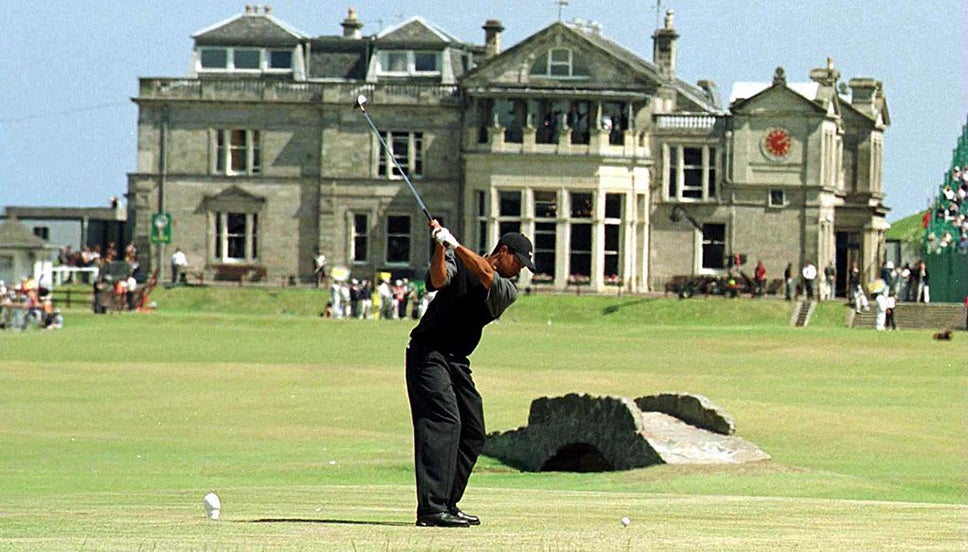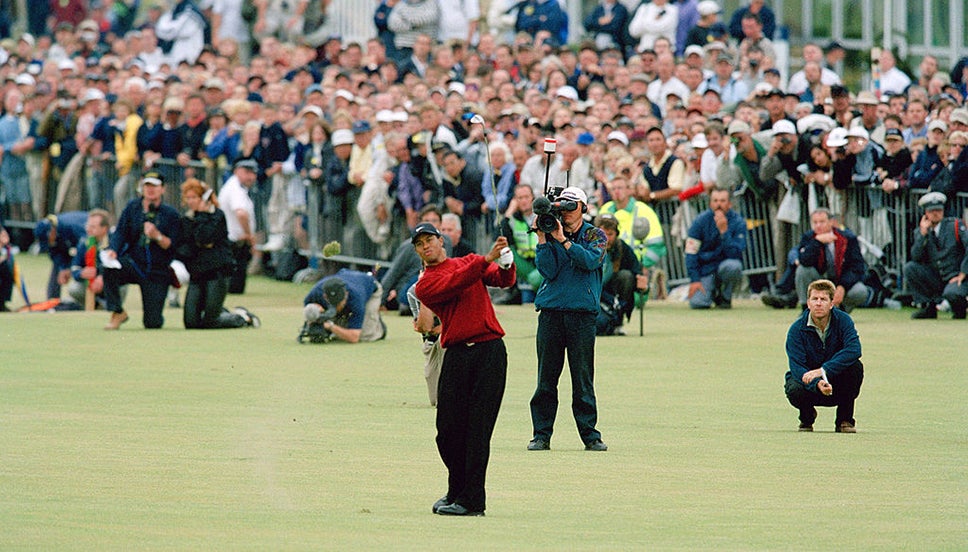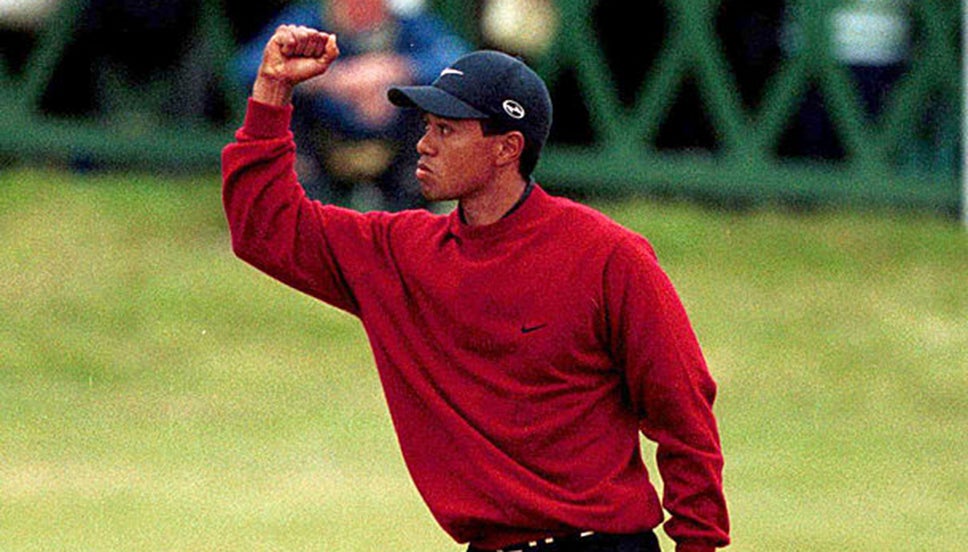An overwhelming favourite
The expectations surrounding Woods could not have been higher ahead of the first Open of the new millennium.
Having ended the previous year with four PGA Tour victories in succession, Woods extended that stunning streak to six at the start of 2000, winning the Mercedes Championships in Kapalua and the AT&T Pebble Beach Pro-Am.
Further triumphs soon followed in the Bay Hill Invitational and Memorial Tournament, before Tiger hit new heights on his return to Pebble Beach for the U.S. Open, cantering to victory by a scarcely believable 15-stroke margin.
As a result, few people expected anything apart from another Woods win when the 24-year-old arrived at St Andrews seeking to become only the fifth player in history - after Gene Sarazen, Ben Hogan, Jack Nicklaus and Gary Player - to complete the career Grand Slam.
The overwhelming favourite for the Championship certainly did not disappoint.
Total control
Woods would later reflect on 2000 as "just an amazing year of control" and his mastery of the golf ball was clearly evident over the first 36 holes at St Andrews.
His blemish-free 67 on day one was a textbook example of patience being rewarded. There were no early fireworks as Woods begun his round with eight consecutive pars, but he then surged up the leaderboard with birdies at the ninth, 10th, 12th, 14th and 15th.

His score of five under was bettered only by Ernie Els and, while the South African trod water on day two, Woods again kept a bogey off his card en route to a six-under 66.
As a result, Tiger reached the halfway stage leading his nearest rival, David Toms, by three strokes. Victory for the world's leading player already appeared inevitable.
"That the one you're talking about?"
Woods finally made a bogey - his first in 63 holes of Major golf - on the second hole in round three, but his response was emphatic.
The dropped shot was instantly recovered on the third before Woods strengthened his already dominant position with a stunning run of five birdies in seven holes from the eighth.
Gains at eight, nine, 12 and 13 were followed by one of the defining moments of the week, a spectacular shot on 14 that provided a further example of just how well he was playing.
After a discussion with caddie Steve Williams over his second shot at the par-5, Woods let rip with a fairway wood from over 270 yards and made the perfect connection.
His words to Williams as the ball soared into the sky would be long remembered: "That the one you're talking about?"
Having reached the green in two, Woods two-putted for birdie to get to 16 under. A rare bogey followed at 17, but he again bounced back by birdieing the next, securing a commanding six-shot cushion heading into the final round.
A final round of two halves
Woods would ultimately increase his lead from six to eight on the final day of The 129th Open as he achieved his goal of completing the career Grand Slam, but it would be wrong to assume the final round was simply a procession.
Playing partner David Duval halved Woods' advantage over the front nine with the aid of four birdies and he could have got closer had a tiny putt not missed its target on the fifth.
A key turning point occurred on the 10th, however, as the top two faced similar-length putts for birdie on the driveable par-4.
Had Duval holed and Woods missed, the gap would have been just two shots with eight to play. Instead, Duval missed from 11 feet and then saw Woods convert from nine feet to open up a four-shot lead.
By the time the pair reached the 17th, Woods was nine clear at 20 under par, having added further birdies at 12 and 14 as his rival faltered badly.
Duval then made an eight on the penultimate hole after taking four to escape the Road Hole bunker, while the runaway leader could comfortably afford to take a risk-free bogey before parring the last to finish with a record-breaking total of 19 under.

Thomas Bjorn, who shared runner-up honours with Els, neatly summed up the imperious performance of Woods, who did not find a single bunker during the Championship.
"It certainly looks like somebody out there is playing golf on a different planet than the rest of us," said Bjorn. "When he brings his A-game, he's just different class."
Woods, who went on to win the PGA Championship for a third successive Major trophy, was undoubtedly in a different class throughout 2000, a year he would end with nine PGA Tour wins, 17 top-five finishes in 20 starts and a record-breaking scoring average of 68.17.
He duly completed the 'Tiger Slam' in 2001 by winning the Masters to hold all four Major titles at once, but 2000 would go down in history as his finest year, which included his most convincing victory in golf's original Championship.
